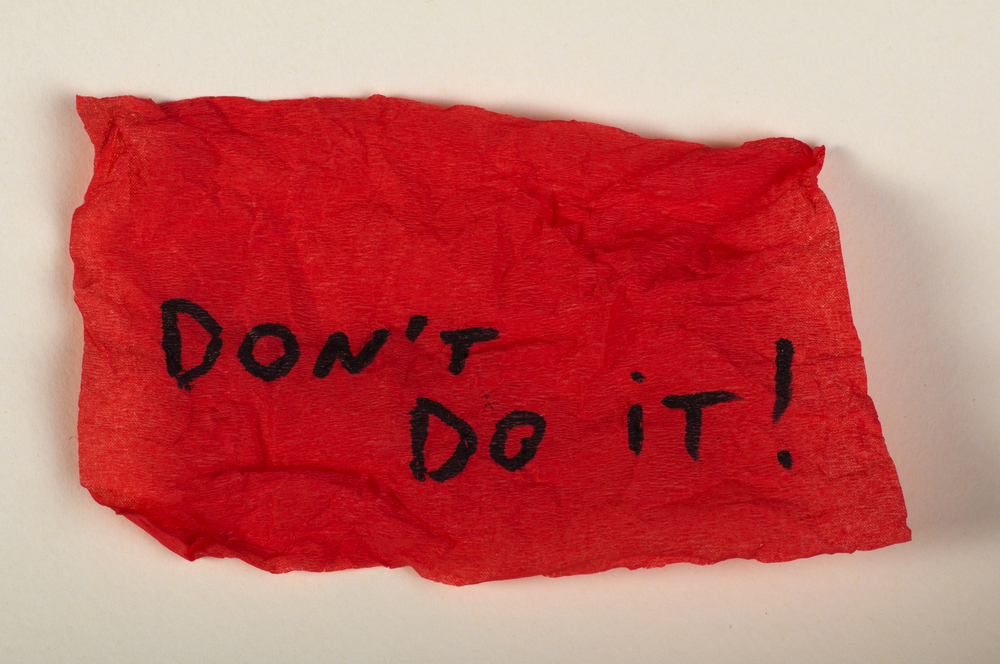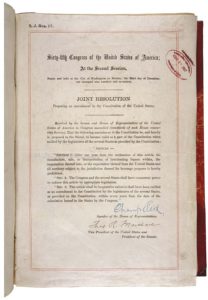
It has long been the belief of policymakers that it is the role of government to ensure the general health of the public in order to head off moral hazard. As great as that may sound on the surface, preventive policies, especially prohibition laws which criminalize victimless actions, often have the opposite effect. By this, I mean that they are, in fact, responsible for creating public health crises and engendering moral hazard. The intent of the Eighteenth Amendment was to mitigate poor health due to alcohol consumption, prevent the disintegration of American nuclear family units, reduce crime and public corruption, and to reduce the burden borne by taxpayers to fund the increasing populations of prisons and public poorhouses.

Of course, history tells us that Prohibition was nothing less than an epic failure. Not only did illegal alcohol consumption approximate pre-Prohibition levels, the quality control inherent in a legal, private marketplace did not exist, resulting in wide divergences in potency and quality. Home distilleries arose, as did the amount of alcohol produced by pharmacies and religious organizations, both of whom enjoyed legal exceptions. A favorite ploy of bootleggers was to establish or partner with established pharmacies to produce “medicinal” alcoholic products. In addition to the “normal” run of alcohol related deaths, roughly 1000 Americans died each year during Prohibition from tainted and poisoned alcohol. As the pace of enforcement under the Volstead Act increased, it became ever more lucrative to bring alcoholic beverage to the market by any means necessary, increasing the spread of tainted liquor throughout society.
Moreover, the criminalization of alcohol created a market for even more dangerous substitutes. Consumption of substances such as cocaine and opioids increased; while these substances had been rendered virtually illegal by the Harrison Narcotics Tax Act of 1914 (which required non-prescribed possession of subject to taxation and licensure), they were not terribly difficult to obtain. In essence, the Eighteenth Amendment succeeded in increasing two concurrent black markets. As a quick aside, increases in the acquisition and usage of illicit drugs still shows a positive correlation with State and local alcohol prohibition today. This is, perhaps somewhat predictably, a case of misguided public policy causing two problems for the price of one.
Not only did Prohibition fail, over the long-run, to decrease the overall consumption of liquor, it also failed to decrease taxpayer burden, the prison population, and public corruption. As a matter of course, all of these things increased under the scope of the Eighteenth Amendment. According to Mark Thornton of Cato and Auburn University, crime in general increased some 24% in the 30 largest cities between 1920 and 1921, while the homicide rate during the Prohibition Era was 78% higher than in the decade preceding it. Naturally, an increase in the rate of crime corresponded with an increase in money spent on enforcement, and an increase in the number of inmates processed throughout the prison system.
Between the passage of the Harrison Act in 1914 and the repeal of the Eighteenth Amendment in 1933, the number of individuals convicted of a federal crime rose from 4,000 to 26,589, an increase of 566%. A clear majority of these individuals were not housed in federal prisons, but in state or local facilities, increasing the burden of taxpayers not only as a function of cost, but community as well. During this period, federal expenditures on prisoners alone rose some 1000%, as state and local prisons were remunerated and new facilities were built. Additionally, expenditures on policing increased by more than 11% during this period. Clearly, there was no easement on the burden of taxpayers in regard to decreasing the prison population.

Because of the large profit margins enjoyed by the most organized black-market cartels, public corruption also increased during this era. Politicians, policemen, and policymakers were all known to accept bribes and gifts from bootleggers, speakeasy owners and crime lords. Ironically, the entity most susceptible to corruption was the federal Bureau of Prohibition, the agency specifically created to enforce the provisions of the Volstead Act. Graft within the Bureau was widespread enough that its own commissioner, Henry Anderson deemed the whole program a fruitless exercise that created public disregard for the law.
Ironically, both alcohol consumption and crime had significantly decreased on their own in the decade immediate preceding passage of the Eighteenth Amendment. Not surprisingly, they decreased in the decade following its repeal. Tragically, current public policy seems to have gathered nothing from the mistakes of this well-publicized era in our history, and has taken us down this same path with the prohibition of drugs.
This is meant to be the first in a series highlighting the problems of our current drug policy. Next, we will look at some of the parallels between the Eighteenth Amendment and the War on Drugs, as well as its negative social costs.

READER COMMENTS
Maniel
Aug 26 2020 at 7:18pm
It always surprises me that the politicians are so eager to support black markets and enrich cartels when they could simply decriminalize and tax. I suppose there is some hope since the latter approach is what has enabled “Indian” gaming.
Garrett
Aug 26 2020 at 10:48pm
I hope a part of this series explores the increase in the legal drinking age to 21 in 1984. The CDC says the high drinking age saves lives, do you agree?
Tarnell Brown
Aug 27 2020 at 12:22am
I will consider exploring this.
Phil H
Aug 27 2020 at 2:47am
I’m sure the series will be much more nuanced than the headline, but that claim “prohibition doesn’t work” is so far off base that it’s worth taking issue. Prohibition is very effective (of course it is, or libertarians wouldn’t whine miserably about the awesome power of the government so much).
Recent notable prohibitions include the use of CFCs, the use of lead in petrol, and the use of hormones in beef in the EU. The prohibition of alcohol works well in Islamic countries.
Clearly Prohibition and the war on drugs give us a lot to think about. But the conclusion “prohibition doesn’t work” is not remotely warranted by the evidence.
Christophe Biocca
Aug 27 2020 at 8:28am
Citation needed on that one. From a quick look at the stats the low alcohol consumption in majority muslim countries is independent of how strict their laws are (morocco is near the very bottom in spite of laws laxer than most of the US), which suggests cultural rather than legal factors are the main driver.
Mark Z
Aug 27 2020 at 3:27pm
“Prohibition is very effective (of course it is, or libertarians wouldn’t whine miserably about the awesome power of the government so much).”
That doesn’t make sense. Libertarians ‘whine’ most about people being brutally punished for continuing to do the prohibited things they were already doing. That some people don’t are afraid to smoke pot because it’s illegal may be one cost to its prohibition, but mostly the ‘whining’ is about the people who keep doing pot and going to jail for it. A prohibition can be completely and utterly ineffective – fail to reduce consumption of the proscribed good – and still ruin many people’s lives and demonstrate the awesome power of government.
Phil H
Aug 28 2020 at 10:21pm
Everything you say there *could* be true, but isn’t.
”Libertarians ‘whine’ most about people being brutally punished”
In fact, they don’t. Just look at this site. They complain about taxes, monetary policy, education, immigration… very rarely about brutal punishment. Who does, in reality, make noise about these things that libertarians claim to care about? Black Lives Matter and the ACLU.
“A prohibition can be…ineffective…and still ruin…lives”
Again, possible, but not what happens most of the time. Just in the posts I read on this site, there are complaints that the government prohibited price changes in paper towels, and it was effective; that professional licensing effectively prohibits people from doing jobs; that borders effectively prevent the free movement of people; etc. etc. I gave more examples above.
Alex
Aug 27 2020 at 10:38pm
“But the conclusion “prohibition doesn’t work” is not remotely warranted by the evidence.”
From the CDC website:
“Over 770,000 Americans have died from drug overdoses since 1999, and the total number of deaths jumped from 16,849 in 1999 to a high mark of 70,237 in 2017.”
Overdose it what happens when an addict has to go to the black market. If people had to buy their groceries in the black market there would be thousands of deaths from food poisoning.
Mark Z
Aug 28 2020 at 12:48am
The point about prohibition-induced substitution is an interesting and broadly applicable one. I hadn’t thought about it before, but I was reminded of this post when I saw this Health Economics abstract (https://onlinelibrary.wiley.com/doi/abs/10.1002/hec.4142?af=R), linked to by Kevin Lewis in National Affairs, of a study finding that while taxes on sugared beverages significantly reduced consumption of said beverages among adolescents, they didn’t significantly reduce calorie and sugar intake in general, because kids just substitute other foods or beverages without reducing overall intake. This seems like a phenomenon that really needs to be taken into account when trying to assess whether a policy really “works.”
R R Schoettker
Aug 28 2020 at 10:10am
“The intent of the Eighteenth Amendment was to…..”
Forcibly impose the beliefs of a minority of extremist teetotalers upon everyone else, ‘justified’ by a litany of excuses that were fabricated and fallacious.
“And here we come to the vital distinction between the advocacy of temperance and the advocacy of prohibition. Temperance and self-control are convertible terms. Prohibition, or that which it implies, is the direct negation of the term self-control. In order to save the small percentage of men who are too weak to resist their animal desires, it aims to put chains on every man, the weak and the strong alike. And if this is proper in one respect, why not in all respects? Yet, what would one think of a proposition to keep all men locked up because a certain number have a propensity to steal?”
—Percy Andreae: “A Glimpse behind the Mask of Prohibition” (1915)
Comments are closed.